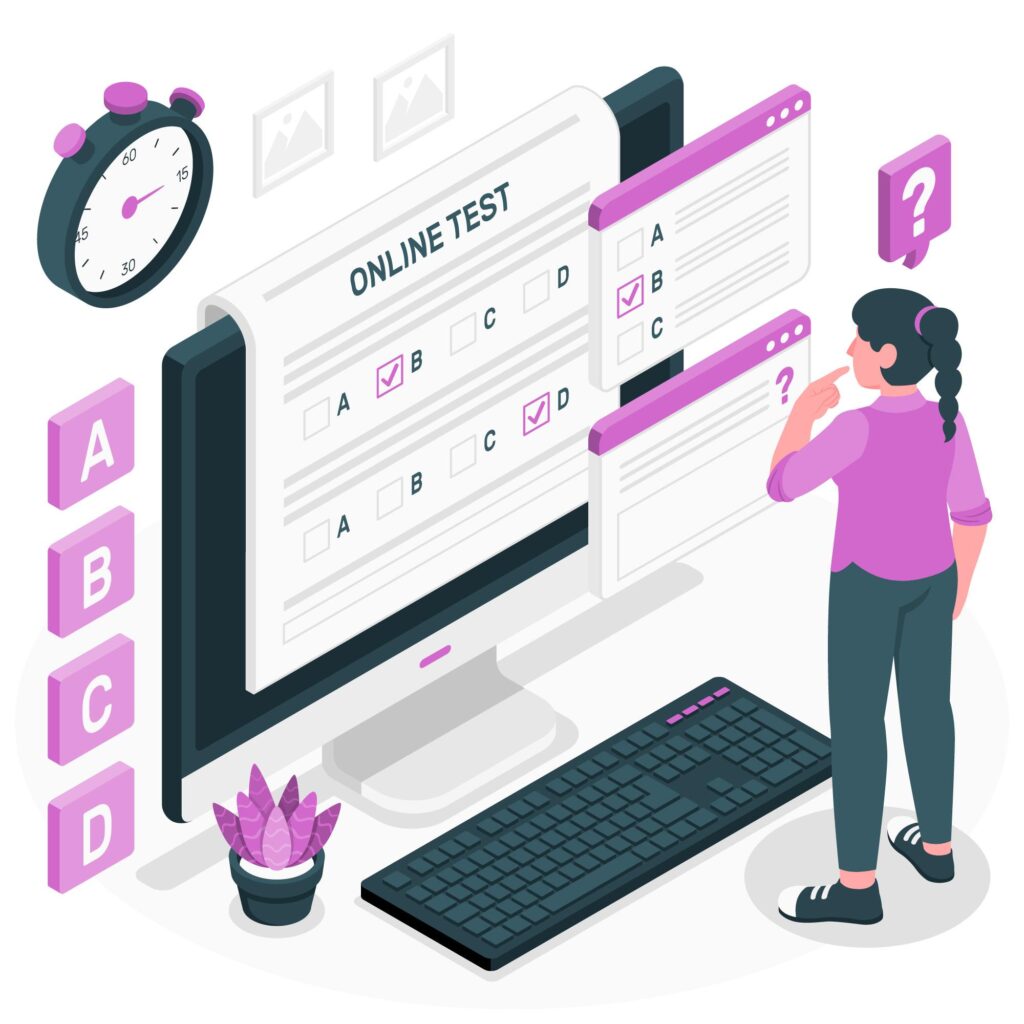
Adaptive Assessments: Transforming recruitment in the digital age
Assessments have a rich history. Since the Chinese Imperial Examination in 605 AD, through the aptitude tests during World War II and the standardised and norm-referenced comparisons of the 20th century, there has been significant evolution.
In addition to this, assessment methods have also transformed, shifting from traditional pen-and-paper tests to contemporary digital evaluations.

So, what’s the latest development in this era?
Adaptive assessments
Without a doubt, assessments are universally recognised in education, career development, and talent acquisition. They are a window into a person’s skills and capabilities. They come in several forms, each offering unique insights.
Skills tests determine whether a candidate has the technical skills required for a specific job or task.
Functional assessments evaluate how well an individual can apply his or her knowledge and skills to real-world situations.
Psychometric tests measure psychological attributes such as personality, cognitive abilities, emotional intelligence, etc. They provide insights into behavioural traits.
As time passed and technology evolved, a new evaluation method emerged—adaptive assessments. These assessments are a game changer. They offer a level of personalisation and effectiveness unmatched by previous evaluation methods.
So, what is adaptive assessment? Adaptive assessment, also called Computerised Adaptive Testing (CAT), is an evaluation system that tailors itself to the individual taking the test. This is one of the key features of adaptive assessments. It is called personalisation and it adjusts the difficulty of questions based on the test taker’s responses. Other key features include immediate feedback and computer-based testing. Immediate feedback offers insights right after the assessment while computer-based testing makes the process digital. These features provide adaptive assessments a distinct advantage over other evaluation methods.
Adaptive assessments in talent acquisition
Adaptive assessments are transforming candidate evaluation. Here is how:
Personalisation: Unlike traditional assessments, which employ a one-size-fits-all approach, adaptive assessments tailor their questions to every candidate’s unique skills and qualifications.
As a candidate progresses through the assessment, the system tweaks the difficulty level and content. If a person answers a question correctly, the system presents more challenging questions. If they answer incorrectly, the system lowers the difficulty level. This guarantees that the assessment genuinely mirrors an individual’s capabilities and offers a more subtle approach to appraising the intricate skills required for a particular position.
Skill measurement: Adaptive assessments have a remarkable capability to measure specific competencies essential for a particular role. Traditionally, assessing skills such as problem-solving abilities, communication skills or cultural fit happened through technical or cognitive assessments. Adaptive assessments, however, provide a more comprehensive view, allowing hiring managers to gauge a candidate’s potential in areas that extend beyond mere technical knowledge.
Efficiency: With adaptive assessments, the questionnaire length is significantly reduced. The system can accurately evaluate a candidate’s capabilities with fewer questions, making the hiring process quicker and more precise.
Immediate feedback: This feature offers candidates insights into their performance right after the assessment, enabling them to better understand their strengths and areas that need improvement.
Enhanced objectivity: Traditional methods often leave room for subjective judgements; with adaptive assessments, the evaluation process is more impartial and data-driven. It removes human bias and provides a clearer picture of a candidate’s true potential.
Beyond hiring: Adaptive assessments are instrumental in training and development as they pinpoint areas where candidates may require further training or enhancement. This serves as a guiding mechanism for individuals on their journey towards personal and professional advancement.
Conclusion
Adaptive assessments offer a more personalised, efficient, and objective approach to evaluating candidates, ensuring a better match between skills and job requirements. With the advancement of technology and a deeper understanding of human potential, adaptive assessments are becoming more important for talent acquisition. They provide a pathway for organisations to identify the right talent while offering candidates a fairer and more tailored experience. The future of hiring is adaptive — adaptive to the ever-changing dynamics of the workforce and the aspirations of those seeking meaningful and fulfilling careers.
Reference: peoplemanagingpeople.com,adaptivex.io,linkedin.com,magicedtech.com,merreo.com,criteriacorp.com